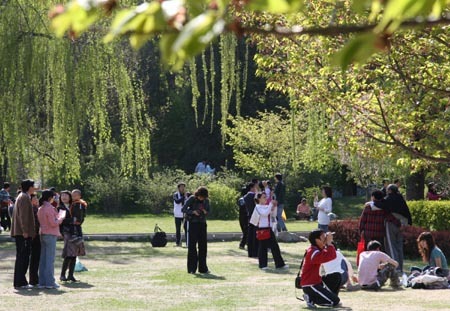I-3 Question: Judges embody judicial impartiality and justice in every country. If judges are involved in corruption scandals, the general public may easily lose confidence in regard to the protection of their rights and interests. As it seeks to build a society ruled by law, what measures will China take to curb judicial corruption and ensure judicial impartiality?
A: Impartiality is key to the judicial system. Since May 2005, Chinese courts have generally embraced openness in case filing, court hearing, evidence admitting, fact finding, legal basis, reasons for judgment, legal documentation and enforcement. The purpose is to ensure the quality and efficiency of criminal trials and avoid wrong rulings. All cases are now tried publicly except those that should be handled otherwise according to law. Announcements are made before public trials so that private citizens and journalists can observe them. Some important cases are shown live on TV. These measures enable those involved in lawsuits to know how the judicial power is exercised throughout their trials, thereby promoting impartiality with openness.
While handling criminal cases, the courts will see to it that human rights are protected, the personal dignity of the accused is respected, their own and their lawyers'opinions are taken into account and the principle of valuing evidence more than oral testimony is upheld. Before making a ruling, the courts seek to make sure that the facts are clear, the evidence is adequate, the guilt is valid, the penalty is appropriate and those not guilty are not held criminally accountable. Statistics show that 1,464 criminal suspects were deemed not guilty and set free by courts across China from January to November 2006.
In order to protect the courts from the influence of nepotism and bribery, the Supreme People's Court has ordered courts at various levels to correctly handle the relationship between the issue of rulings and mediation. The courts should handle cases by mediation, issuing rulings or a combination of both to reach the best possible solution. The courts should not force the parties to accept their mediation by threatening to make a harsh ruling in an attempt to settle more cases by mediation. They are not allowed to mediate in a case for a long time without giving a ruling.

(China.org.cn)